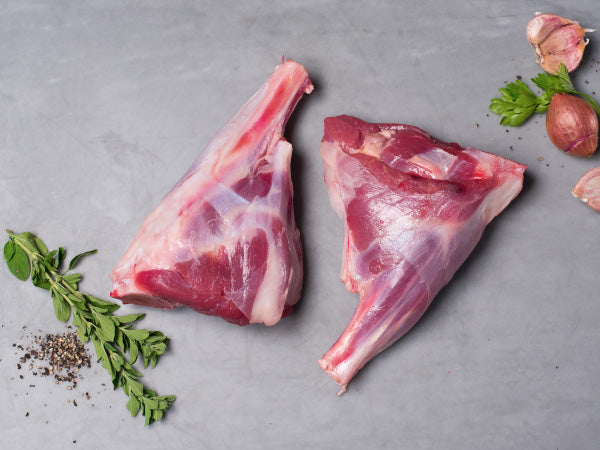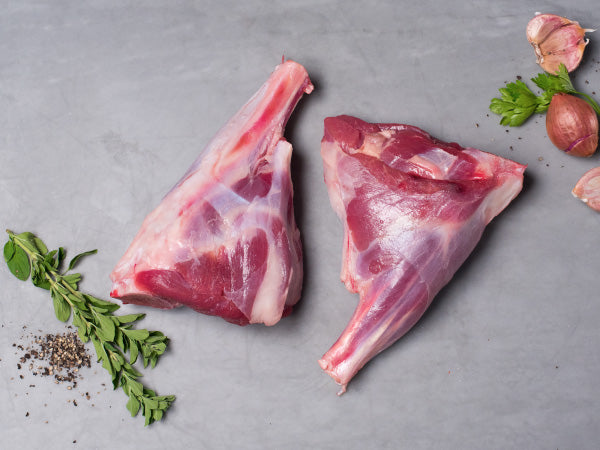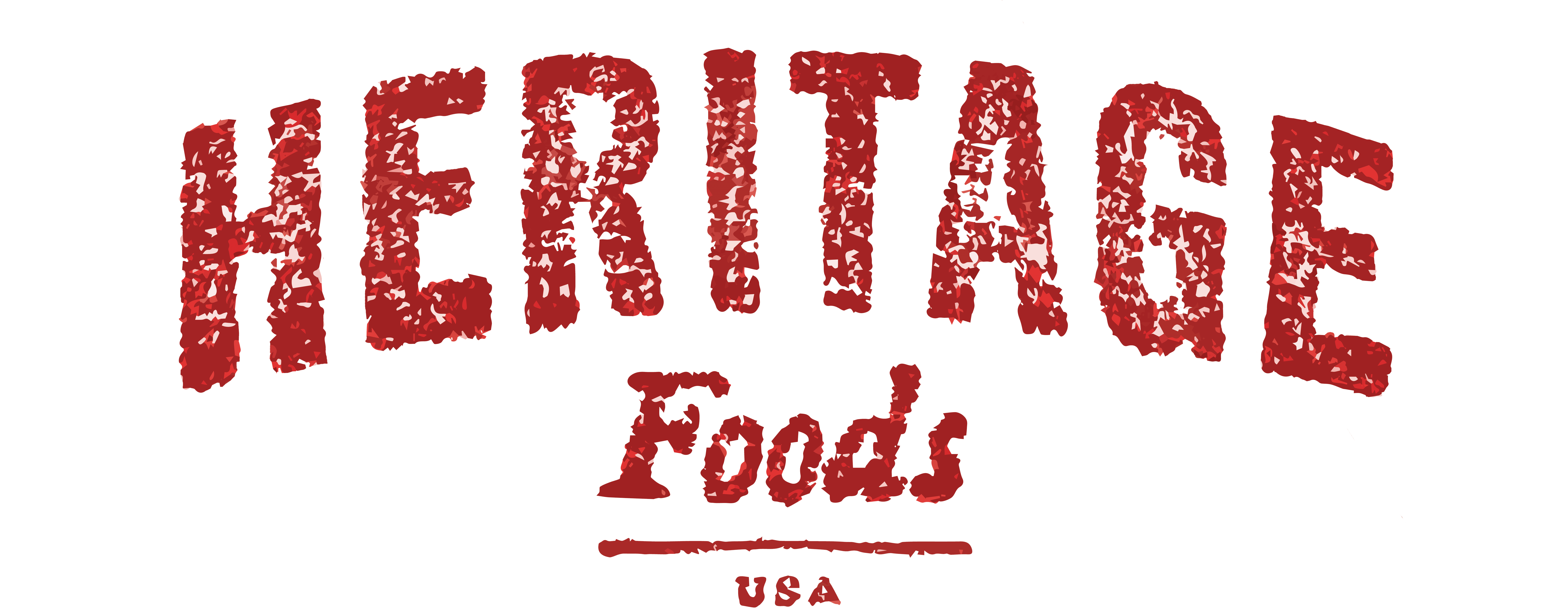

Two shanks, 2-2.5lb total — an ideal cut for braising — Shannon Creek Farm
Goat Shanks
two shanks, 2-2.5lb total
Shannon Creek Farm, Kansas Flint Hills
Goatober is 15 years old! October is the natural season for goat meat, and as we have for over a decade, we are proud to feature cuts of goat as part of our effort to celebrate just how delicious goat meat is.
Shanks are an especially earthy cut — and incredibly delectable when roasted low and slow, or braised until the meat falls off the bone. The shanks are some of the most underrated cuts in the butcher’s case, and make for some of the most comforting and tasty meals imaginable.
Although leaner than beef or lamb, goat meat is rich and flavorful and boasts light floral notes in every bite. Because goat meat has less fat, it lends itself to slow and low cooking including braises and barbecue — see our Cooking Tab for more information!
Goatober has come a long way since the great cheesemonger Anne Saxelby came up with the idea 15 years ago! Goatober was launched because dairies need to produce milk to make cheese, and the only way for an animal to make milk is to have babies. On goat dairies, whenever a male is born, unless it’s kept as a breeder, there is not much use for it since males do not produce milk and the market for male goats is not a large one in the United States. Some male babies are sold onto the commodity market to lead unhappy lives in confinement while others are euthanized.
We wanted to launch a project to keep all the kids on the farm, roaming the pastures, while also providing an additional source of income to the farmers. The natural mating cycle of goats is to be born in the spring and be ready for processing in the fall — that is why we call the project Goatober although it has gone by other names too like No Kid Left Behind!
Since 2010 Goatober has grown to become a celebration of all things goat, the most widely consumed protein on the planet!
Goat cuts ideal for slow and low cooking like braises and barbecue include leg, shoulder, ribs, and shanks, and goat chops and rack can be seared in a pan.
How to Prepare
Braise:
1. Take the shanks out of the refrigerator an hour prior to cooking.
2. Preheat your oven to 300℉.
3. Season liberally with salt and pepper on all sides.
4. Preheat a dutch oven with lid over medium-high heat and sear the shanks in neutral oil on all sides until brown. Drain some fat, remove the meat, and set aside.
5. In the same dutch oven, cook at medium heat about a cup of diced onions, ½ cup of celery, and ½ cup of diced carrots, until the onions are translucent. Add two tablespoons of tomato paste and cook for 2 minutes. Add one cup of wine or broth to deglaze the pan and cook until the wine has reduced by half.
6. Return the meat to the pan. Add enough boiling stock or water to cover the meat just slightly more than halfway. Add a bundle of herbs such as rosemary, thyme, and bay leaves tied with butcher’s twine to the dutch oven. Cover and place in a preheated 300℉ oven for approximately 30-40 minutes per pound of meat or until tender.
BBQ:
1. Take the shanks out of the refrigerator an hour prior to cooking and bring a smoker up to 225 degrees.
2. Pat the meat dry and season the meat liberally with salt and pepper.
3. Place shanks in the smoker for 4-6 hours until the meat is tender or when the internal temperature reaches 205 degrees. We recommend half way through the cooking process to wrap the cut in butcher paper and return to the smoker for the final hours.
© 2025, Heritage Foods Powered by Shopify
